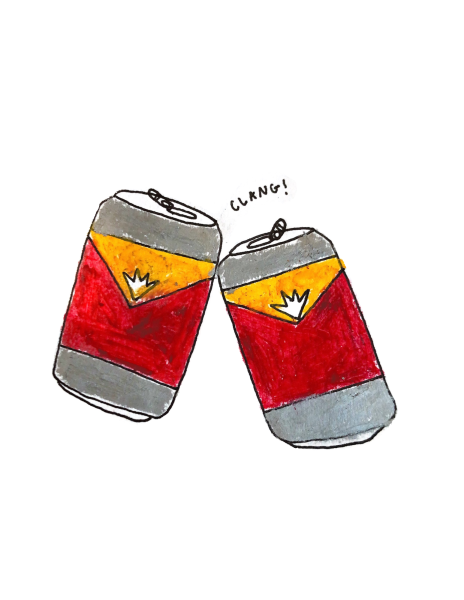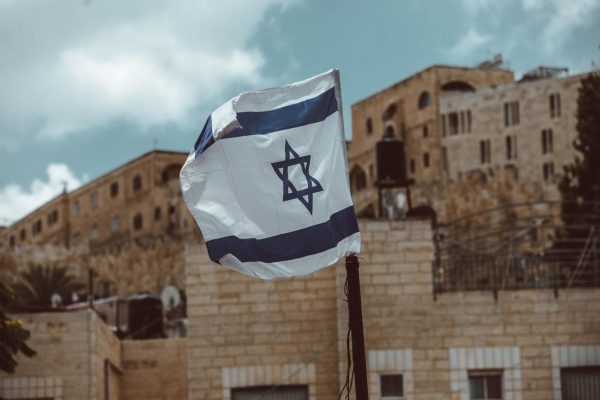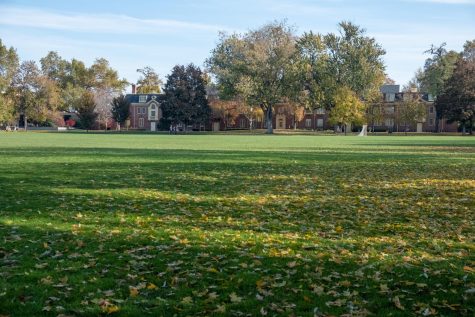Op-Ed: Whitman’s unpaid debt
March 3, 2022
On Jan. 30, the Whitman community received an email from the Associated Students of Whitman College (ASWC) titled “Land Acknowledgment.” In their email, ASWC reiterated the truth that Whitman occupies unfairly expropriated land (earlier acknowledged by the administration in its own land acknowledgment in 2020), mentioned injustices actively committed by the government with the connivance of our college, committed to respect the autonomy of the Confederated Tribes of the Umatilla Indian Reservation (CTUIR) and even mentioned the “collective responsibility to dismantle the settler colonialist state” that we all share.
Now, I would be remiss if I didn’t mention the environment around which this email was sent. The world remains at a crossroads when it comes to imperialism. As we turn on our TV screens and mobile devices, we grapple daily with the human cost of the Israel-Palestine conflict, the aftermath of an imperialist War on Terror and, most recently, the painful invasion of Ukraine.
As we witness the effects of unfettered power and unwarranted hegemony in the present, we must also look inward and reconcile with the aftermath of domestic imperialism in the not-so-distant past, everywhere from the Navajo nation to the tribes of the Cayuse, Umatilla and Walla Walla.
ASWC’s Land Acknowledgement is a step in the right direction in attempting reconciliation, but it remains incumbent on Whitman to do more to atone for its complicity in dispossessing indigenous people of their land and heritage.
In this regard, neither the ASWC Land Acknowledgement nor the Whitman Land Acknowledgement of 2020 match the weight of the legacy of settler colonialism which they attempt to atone for. I strongly believe that even if Whitman were to acknowledge its racist, settler-colonial history by changing and/or removing its name, seal, buildings and statues, that would not be enough.
This institution, and others like it, should make a commitment to establish a reparations fund for the benefit of the Walla Walla, Cayuse and Umatilla people. Little else will suffice. Make no mistake, an institution that grew its endowment by nearly $300 million during a pandemic-induced economic recession can and must find ways to make reparations to the Indigenous communities it marginalized.
This reckoning is not new territory for elite institutions. Right now Georgetown University is seeking atonement for the descendants of slaves, sold by the university and Maryland Jesuits in 1838. They have established a Georgetown fund supported by a minimum of $400,000 a year for community-based projects to benefit the descendant community. This prominent example is merely the next step in Whitman’s journey toward reconciliation.
We must remember that through the struggle of the Indigenous population and a tired community, Whitman dropped the imperialist “Missionaries” name from its mascots, forged a memorandum of understanding with the CTUIR and adopted the land acknowledgment noted earlier in this Op-ed. Positive change is possible in this very community, and is pushed for tirelessly by the Indigenous Peoples Education and Culture Club (IPECC), the Pacific Islanders Club (PIC) and many other students, faculty and members of the administration.
There are many here who seek progress and in fact, it is these very people whom this Op-Ed is for. If you identify as one of these changemakers, as an “ally”, I encourage you to push our administration to commit its treasure to the communities of the Umatilla, Cayuse and Walla Walla. I encourage you to pressure our administration to establish a reparations fund for Indigenous communities affected by its history, and make a final commitment to begin a restorative process to give back unfairly expropriated land. Like you, I believe it is time for Whitman to pay the unpaid debt of history.









Molly • Mar 7, 2022 at 5:57 pm
Well written, Jeff, and well thought. A reparations fund from Whitman to the CTUIR is a concrete way to pay back some of the debt of history. I’d be curious to learn possible mechanisms to fund this. I would donate to that reparations fund and suspect others might too.
Abdelrahman Elawadly • Mar 3, 2022 at 11:11 pm Whitman Wire Pick
The Israeli-Palestinian case is not a conflict. it is occupation and ethnic cleansing of a country.
Whitman Student • Mar 9, 2022 at 11:55 am
If Israel completely left the entire west bank tomorrow, would that really be the end of the violence? Would Hamas lay down their weapons and sing Kumbaya with Israel?
Georgina • Mar 3, 2022 at 7:01 pm
I totally agree on the reparations funds provision.
A very informative piece